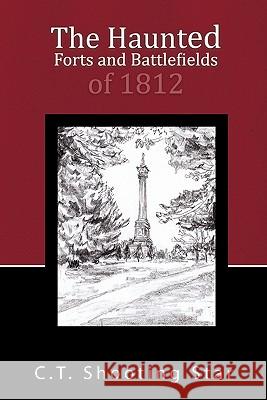The Haunted Forts and Battlefields of 1812 » książka
The Haunted Forts and Battlefields of 1812
ISBN-13: 9781450285537 / Angielski / Miękka / 2011 / 172 str.
The hatred didn t exist at the beginning of the war. But soon after the Battle of Queenston Heights and the death of General Brock, the War of 1812 became more a case of survival of the fittest. Besides the brutal fighting; perhaps the most notable aspect of the War of 1812 was the hatred. If not, then why would the dead remain restless?
It was a barbaric war; in an inhospitable climate; with an abundant number of ghost creating opportunities. There were nasty endings from bayonets, swords, musket balls and cannon balls; plus, two huge explosions at Fort York and Fort Erie which resulted in missing bones and unmarked graves.
If you add savagery and death by tomahawk to the following; then death from drowning, freezing, disease, burning and sickness would include a greater numbers of victims than the major battles.
If you thought that being wounded was a better fate, then think again. Instead of a proper pain killer, the wounded were given rum and a musket ball to clamp between their teeth while they braved the most hideous fate possible for wounded soldiers: the barbaric battlefield medical practice of amputation. If a soldier s last memory on earth was being wounded before he died, then that agony might also survive the grave.
Because both America and Britain were not prepared to wage a war with each, there was a shortage of regular soldiers to command in 1812. Therefore, the North American armies were also comprised of militia, Native American Indians and part-time soldiers. Moreover, what started as a political row in the seats of power became more of a personal matter at the local level. In addition to the mounting anger, there was pressure on both sides to increase the number of regular troops in the field as the war continued. The increase in regular troops contributed to a more bitter and violent war, with the final result being several large scale battles and a siege.
Why did the dead remain restless you might ask? Why indeed."











